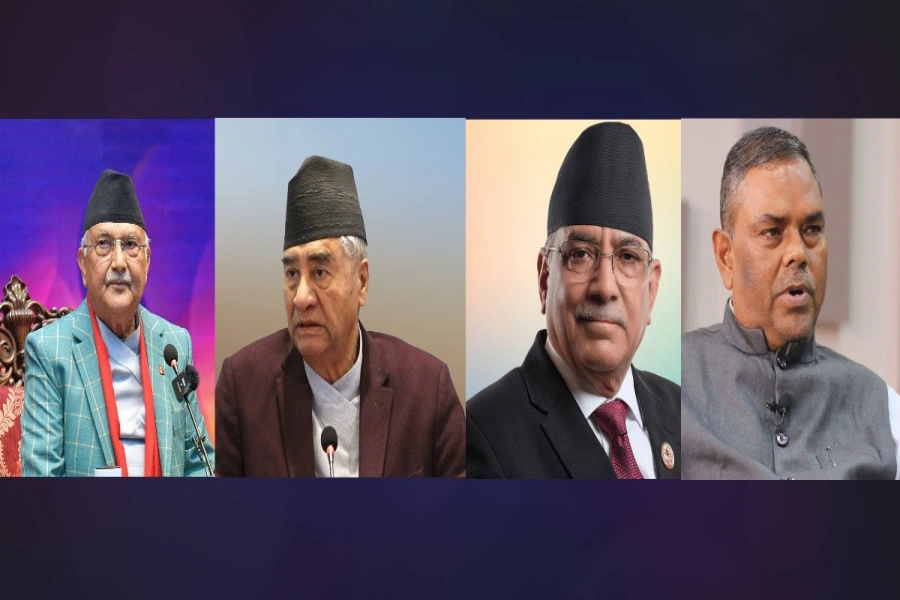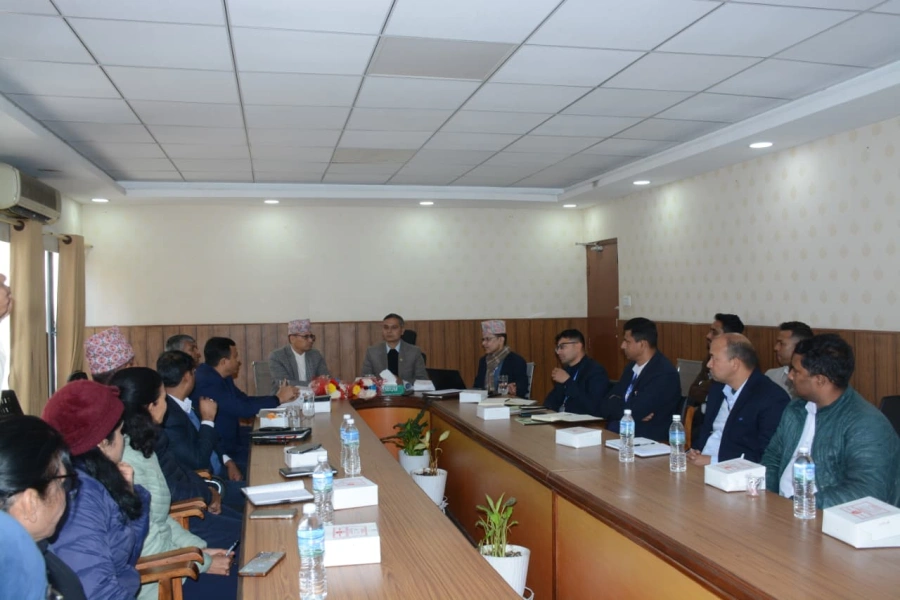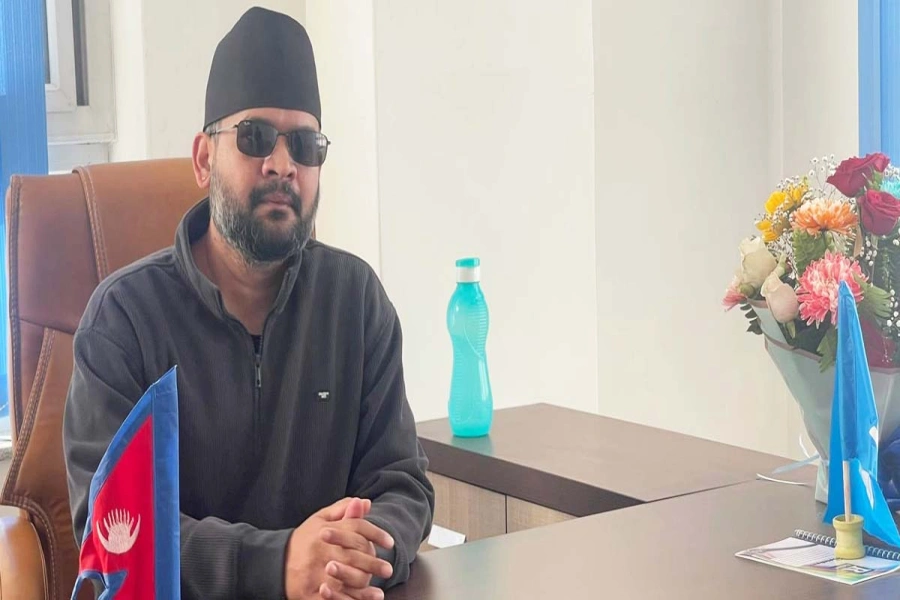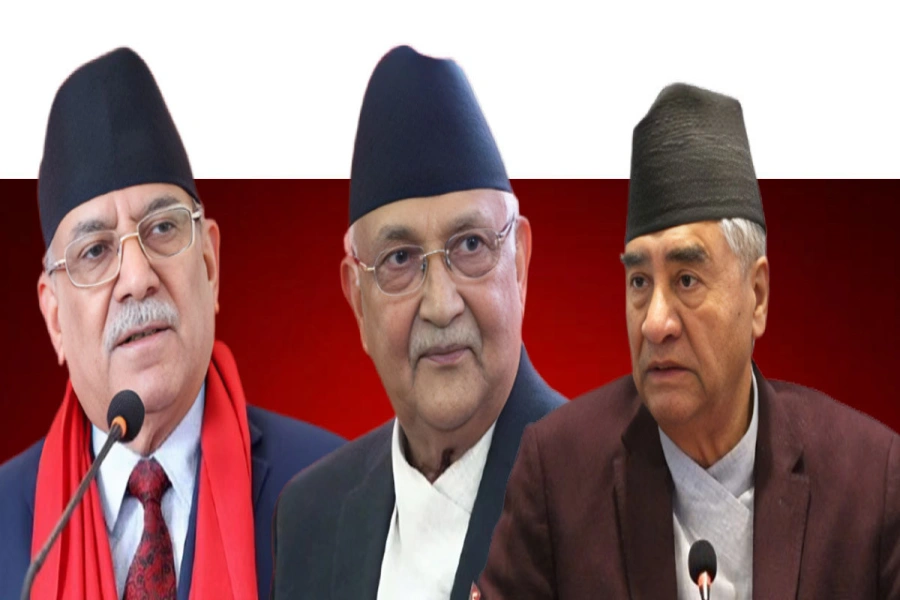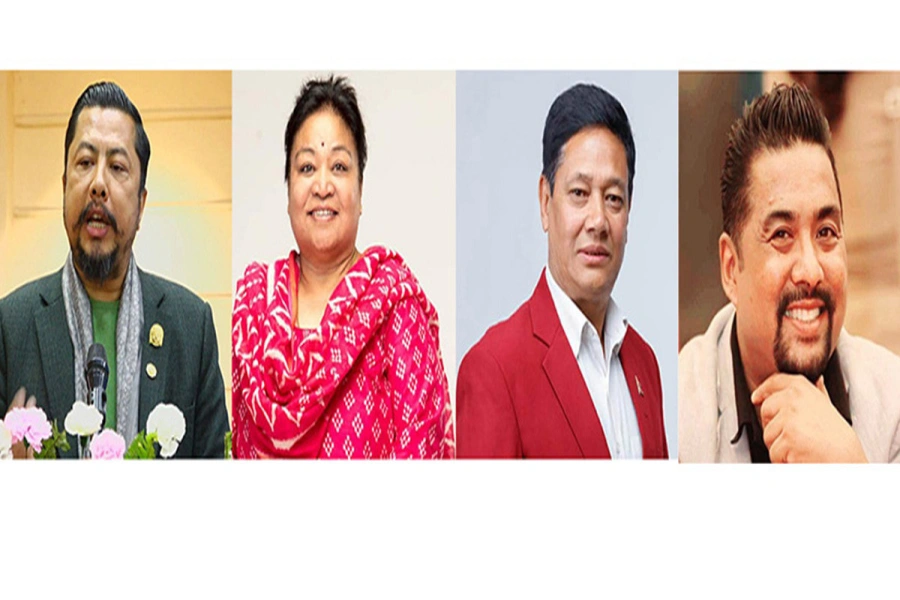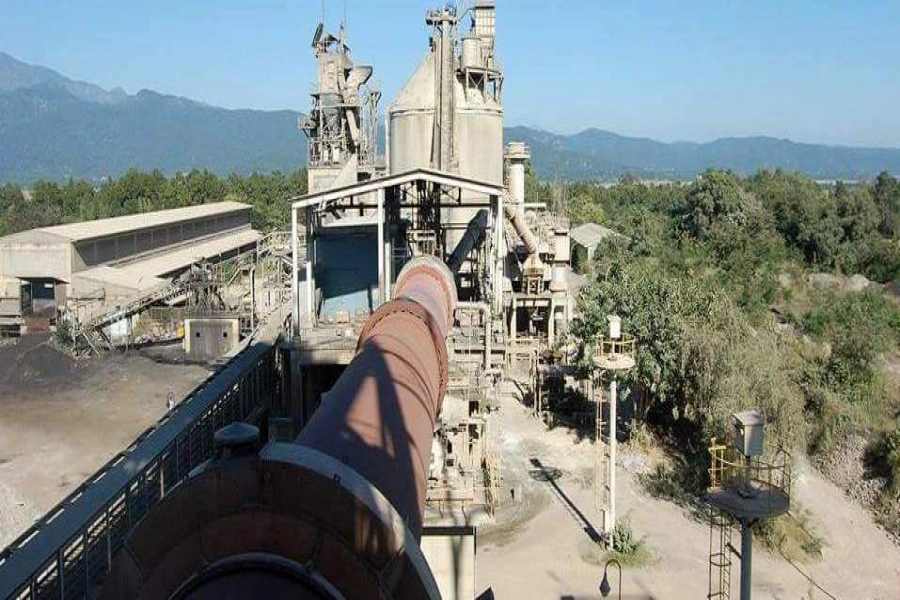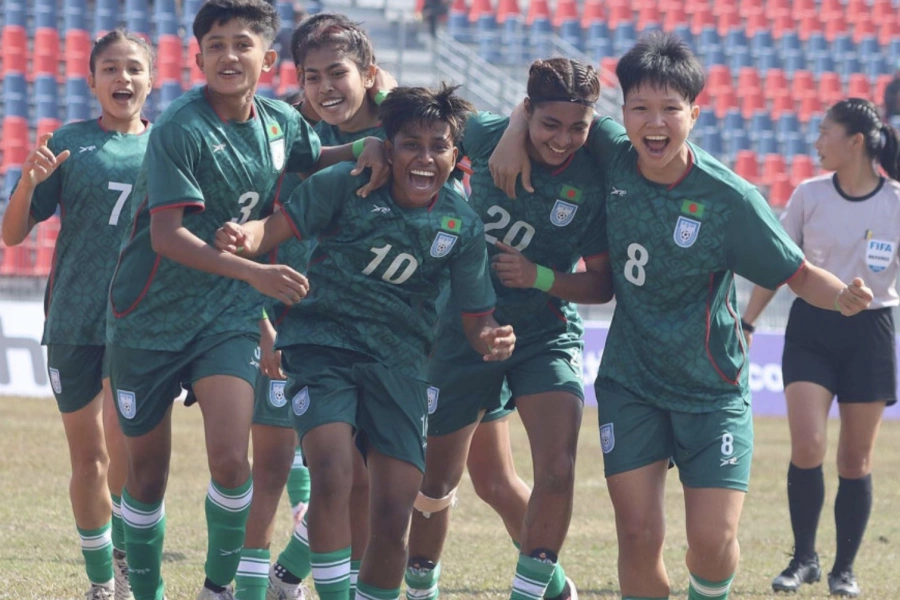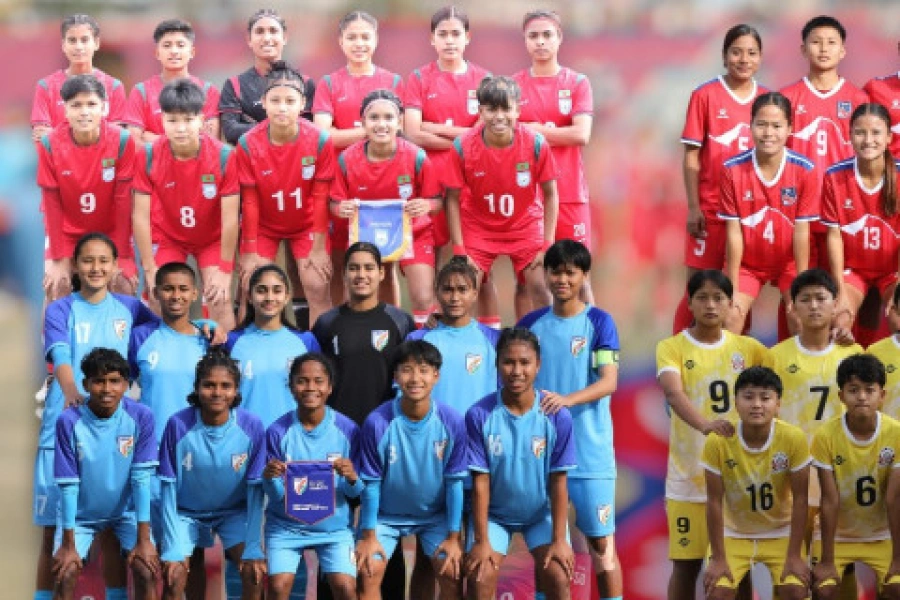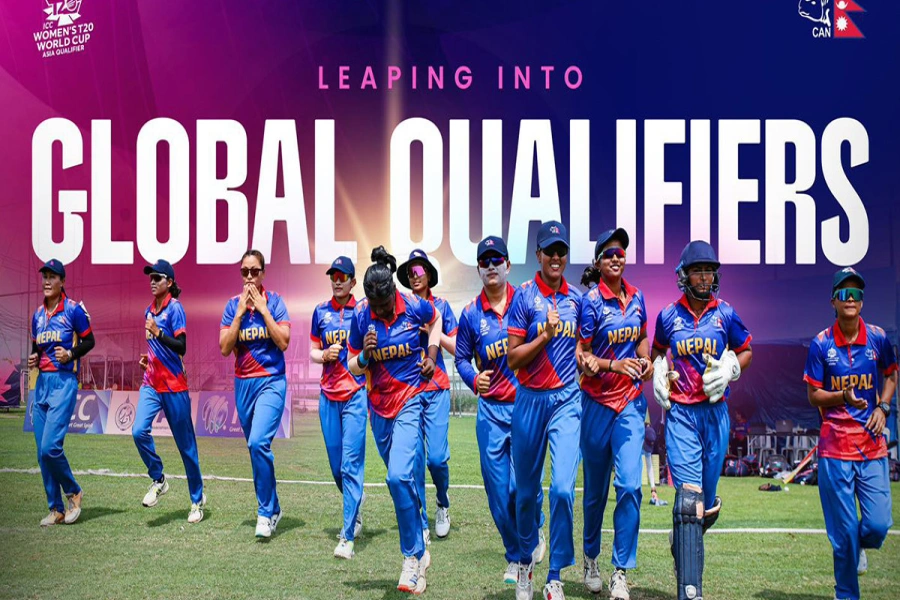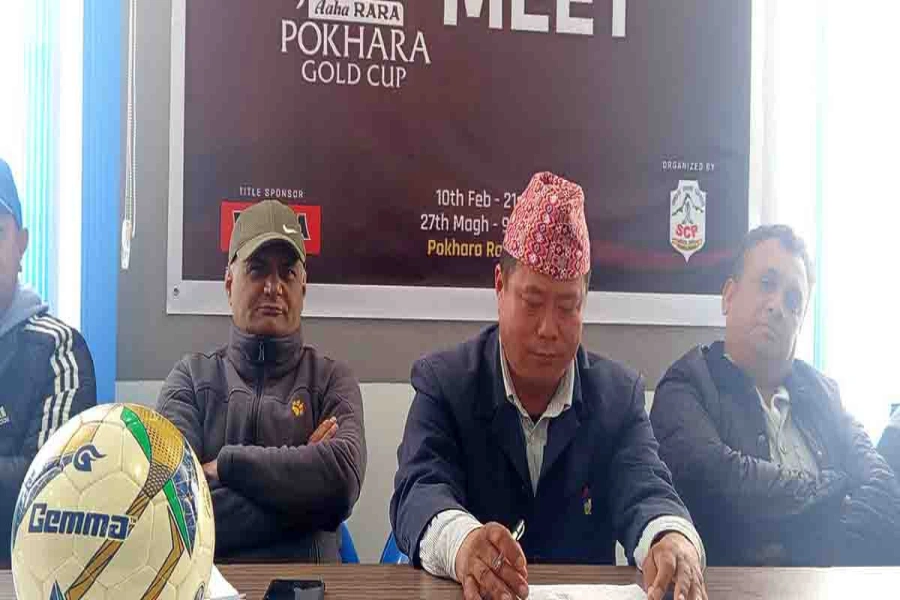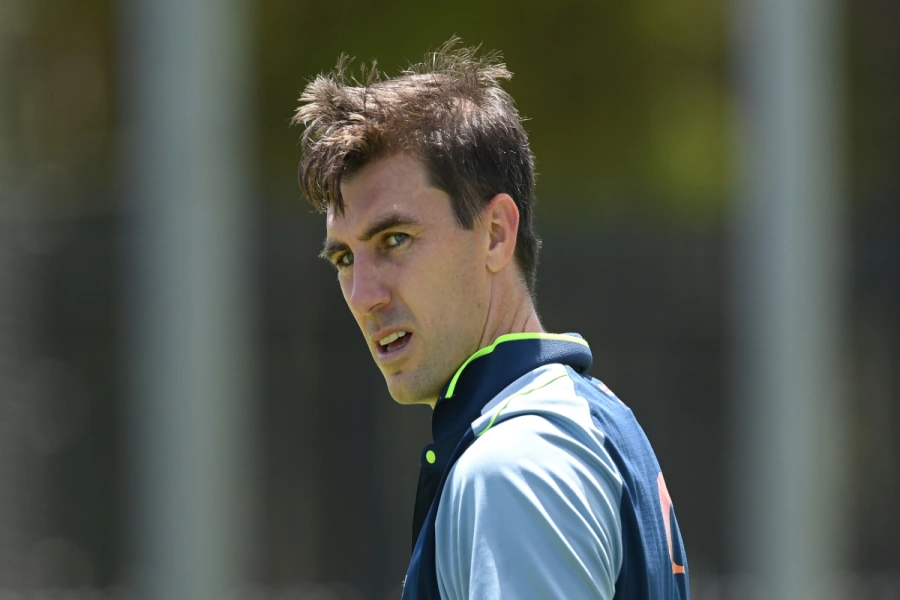Amid sinking hopes at the popular level, the government’s promises are far insufficient
to assuage public disenchantment which threatens to break loose any time soon.
No one is accusing Prime Minister KP Oli of being a visionary and a brilliant deliverer. His government’s massive mandate has become a daunting drive. The bubble has burst early, with the development highway marked by twists and turns of power politics. Clearly, a new awakening is rising and the tide has changed course.
Blaming abstract elements won’t do. On the very day Oli was stressing on corruption control, Transparency International’s annual report on corruption perception index in 2018 showed Nepal having slipped by two notches to become South Asia’s most corrupt nation, next only to Afghanistan. The report was a damning castigation of the state of affairs.
For a prime minister who began his tenure in office last spring with a pledge to ensure zero tolerance of corruption, the study identified political corruption as the prime culprit.
Oli’s two-thirds majority in parliament is now widely perceived as a technicality that no longer reflects popular perception—something echoed by its reactive and defensive approach to pressing issues. To make matters worse for the ruling outfit, Oli and his lieutenants with a misplaced sense of loyalty get engaged in running feuds with the intelligentsia and news media like rabid street fighters.
The prime minister had begun to feel his strength stems from the foreign jaunts that he believes have triggered a pace not matched for the last two decades. Typically, when politicians fail in domestic issues, they run for foreign policy thrust and make ridiculous claims. His government’s stand on the turmoil in the oil-rich South American state of Venezuela seems to have queered the pitch against his misplaced high hopes. It casts a grave shadow most likely to unsettle the government by inherently anti-communist powers.
On Friday, Oli’s man, Communications and Information Technology Minister Gokul Prasad Baskota promised a “miracle within three-four years”. It rings in consonance with his cabinet boss’s claim: “The world is astounded by Nepal’s achievements.” At the Standing Committee meeting of Nepal Communist Party (NCP) in December, many members summed up the government’s nine-month performance as “poor”. In response, Oli claimed: “People are wowed by our performance, yet the party is criticizing the government.”
Activist Iih to embark on foot journey from Lumbini to Singha D...

Daunting drive
Oli wants to go to bed with his boots on, lest they might find their way to Pushpa Kamal Dahal’s feet. Members of parliament should ensure that they are not domesticated to utter passivity or reduced to the whims of the leadership’s officially brandished but practically archaic “whip”. The oppressive and ridiculous whip system kills initiative and brighter ideas. In a regimentation-like style, party cadres are steered to blindly rally behind them like a herd of cattle driven by tyrants. This is lubricated by dubiously obtained money, and hence manipulative contracts and influence peddling.
Bipartisan decisions in the United States Congress or the British “mother of parliaments” allow cross-voting as an accepted exercise. The ultimate fate of the independent decisions is left to the voting public. In Nepal, MPs have been reduced to being mere meek rubber stamps, under the atrociously outdated and undemocratic “whip”, euphemism for establishment’s diktat. The vibrancy of a polity carries the credo: right to dissent is the essence of democracy.
In desperation, Oli used the state media NTV to say he cares for nothing—name, fame or fortune, feigning that power to him is secondary.
Comrades of his own of Nepal Communist Party (NCP) are no longer united in banking on him. Former Prime Minister Madhav Kumar Nepal’s group are putting their fingers crossed, awaiting the opportunity to lead. Inconsistency is the trademark of Pushpa Kamal Dahal who jointly shares the party chair. Dual dealings have destroyed his standing no end. His claim of Maoists being an epitome of revolution deludes him no end. Even his comrades do not hold it as a Mao truth.
Former Prime Ministers Madhav Kumar Nepal and Jhalanath Khanal in tandem with former Deputy Prime Minister Bam Dev Gautam form a troika against Oli within the UML faction of NCP. The troika potentially poses a greater threat to Oli than does the Maoist faction’s supremo Dahal in the ruling party. Averse to change, political parties want to retain their ultra-conservative approach to hierarchy and organizational functioning.
Is instability ingrained in us Nepalis? The political situation is heating up. A cursory glance since 1951 shows how frequently governments change in Nepal. Italy and indeed Israel have similar records. So do Jordanians. Previously, the ruse in Nepal was found in Palace interference.
Righting records
Parties are public entities whose statements should stick. Nepali Congress leader Sher Bahadur Deuba dissolved the parliament. Who should former King Gyanendra have appointed the prime minister when Deuba dissolved the House for general elections, only to retract from the pledge while also seeking an unconstitutional extension in office from the monarch? There is no fixed feature in political structure, only refined ones. Nor is there any time for free lunch anywhere. There is always a price tag. Vagaries and vicissitudes of power culture, elections and politics, topped by money, constitute basic recurring measures of political practices in virtually all developing democracies.
Contradictory comments constitute political culture of not only the Nepali Congress but also of the NCP constituents, functioning as UML and Maoists prior to their unification declaration last year. Hence, it is a daunting task for NCP with a big majority but fast fading public credibility. Similarly onerous is the task for the main opposition Nepali Congress’s strive for regaining the ground and organizational morale that caved in after its disastrous performance in the 2017 local and general elections.
In power for most of the years since the 1990 restoration of multiparty polity, NC still enjoys high profile popular ratings. In 1960, King Mahendra invoked a constitutional clause to dismiss its government whereas, in 1980, voters served it a severe setback. Unless the NCP splits, there is no realistic room for the main opposition to bounce back to power for the next four years. Such a prospect of a long wait for a party that brags of having led “all democratic movements” is politically exacting, physically exhausting and emotionally heartbreaking.
In Nepali political parties, false pride and deep-seated greed produced a breed that engaged in tall talk that never got to walk. Politics of power stands at its worst in South Asia, with Nepal taking an infamous lead. Nepalis have had to bear with more governments anywhere else these past 30 years. Lack of mass ownership in a government triggers alienation and eventually provokes anger in people. Lack of solidarity within the individual parties is transparent to cadres whose morale, as a result, diminishes.
NC leader Prakash Man Singh chose the anti-government rally organized by the main opposition party in all 77 districts last week to announce: “It is not certain when the people will displace this authoritarian government.” Normally, a government with a highly comfortable majority should be expected to complete its five-year term. Singh’s remark casts doubt over the NCP government’s unpredictable fate.
Best boots forward
Oli is basically a product of opportunism riding the tide dictated by circumstances more than any planned initiative. Former Deputy Prime Minister Bam Dev Gautam fans fears in the intrigue-ridden party leadership that he might torpedo everything NCP currently upholds as its philosophy.
Neither New Delhi nor Beijing rates Pushpa Kamal Dahal as reliable. Oli’s strength is that Dahal is distrusted by both the two giant neighbors which have been jointly brewing something. Dahal’s antics and smart pretences have not earned him any positive points.
Oli bares his teeth whenever he hits at the press. He warned that those who criticized him would be at a loss for words if he responded to them. What’s stopping him from to spilling the beans, then?
Redrawing the national political map is the call of the hour. Amid sinking hopes at the popular level, the government’s promises are far insufficient to assuage public disenchantment which threatens to break loose any time soon. Someday someone from among today’s somebody will become a big body. How precisely soon no one can tell with certainty. A political meeting blended in a military move could click.
Many methods are prescribed for political stability and economic prosperity. Nepal has experimented with a plethora of approaches since the 1951 dawn of democracy. People are exhausted by successive failures, which might have triggered the recent spate of loud thinking over the probability of a popular mutiny on the stilts of an appropriate military move.



